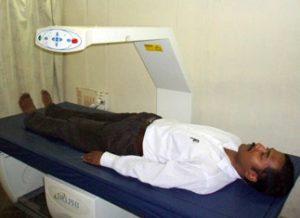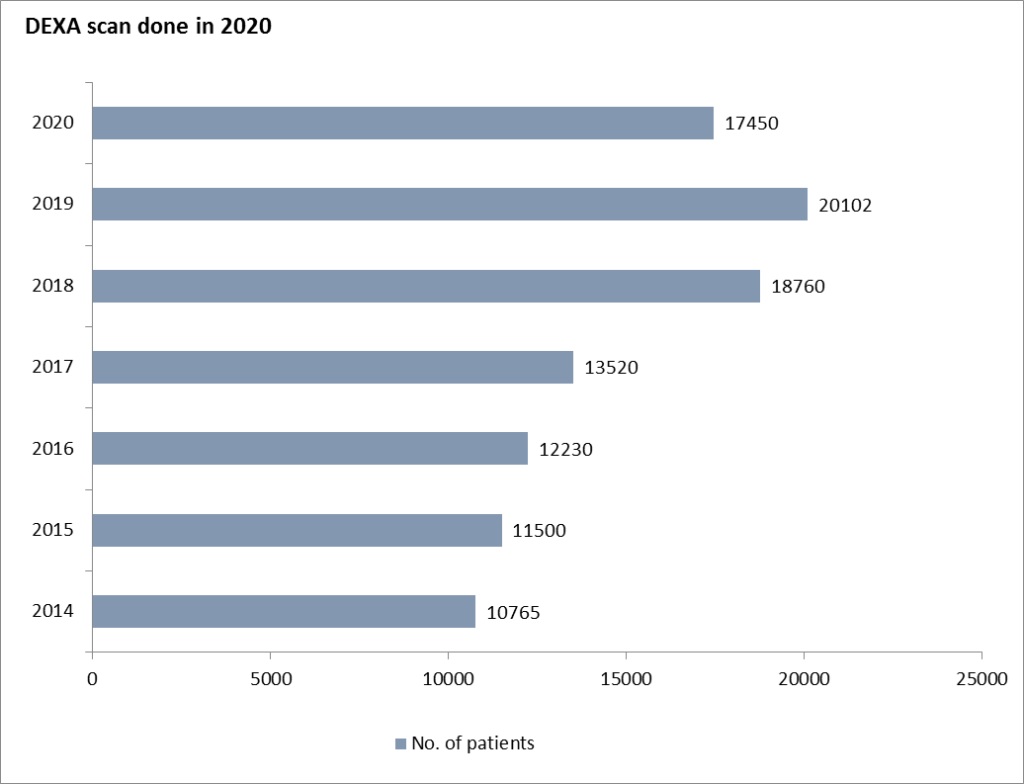 Endocrine department has Dual energy X-ray absorptiometry (DXA) scanning machine to measure bone mineral density (BMD). Two X-ray beams with different energy levels are passed through the patient. The BMD is estimated after subtracting absorption in the soft tissue (fat and muscle). Dual energy X-ray absorptiometry (DXA) is the most widely used to diagnose osteoporosis. BMD is expressed as T scores and Z scores. The T-score is the number of standard deviations by which a person's BMD differs from that of healthy young adults. The Z-score is the number of standard deviations by which a person's BMD differs from that of same age and sex. A T-score of -2.5 or less is indicative of osteoporosis. DXA scan is also used to measure total body composition.
Endocrine department has Dual energy X-ray absorptiometry (DXA) scanning machine to measure bone mineral density (BMD). Two X-ray beams with different energy levels are passed through the patient. The BMD is estimated after subtracting absorption in the soft tissue (fat and muscle). Dual energy X-ray absorptiometry (DXA) is the most widely used to diagnose osteoporosis. BMD is expressed as T scores and Z scores. The T-score is the number of standard deviations by which a person's BMD differs from that of healthy young adults. The Z-score is the number of standard deviations by which a person's BMD differs from that of same age and sex. A T-score of -2.5 or less is indicative of osteoporosis. DXA scan is also used to measure total body composition.
The department also runs following research projects in osteoporosis.
Procedures done in bone densitometry:
Services
Integrated Diabetes Foot Clinic
- Whole body scan
- Trabecular bone scan
- Body composition scan
- Vertebral fracture assessment scan
- Hip structural assessment scan
Dexa Scan Statistics from 2014-2020






